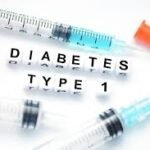In its latest circular, the Central Board of Secondary Education (CBSE) has announced that students suffering from Type-1 diabetes will be permitted to bring insulin pumps, glucometers, and glucose testing strips into the examination hall.
Following a review of facilities for these students conducted with the assistance of experts, CBSE has determined that self-medication and testing amenities should be provided in board examination halls for Class 10 and Class 12 students with Type-1 diabetes.
Additionally, students are allowed to carry sugar tablets, chocolate, candy, fruits, snacks, and any high-protein diet, as well as medications prescribed by a doctor.

Dr. Sanyam Bhardwaj, CBSE Controller of Examinations, stated in the circular that students will need to provide an undertaking signed by their parents confirming that they are carrying an insulin pump and a continuous glucose monitoring device, and that these devices are not communication devices that could compromise exam security.
Furthermore, the exam center superintendent must be informed one day in advance that the student will be carrying these devices.
For diabetic students, the following items are permitted:
- Sugar tablets, chocolate, candy
- Fruits such as banana, apple, orange
- Snack items like sandwiches and any high-protein diet
- Medications as prescribed by a doctor
- Water bottle (500 ml)
- Glucometer and glucose testing strips
- Continuous Glucose Monitoring (CGM) machine, flash glucose monitoring (FGM) machine, and/or insulin pumps.
Additionally, the board has outlined some standard operating procedures for students carrying these items:
- Students must declare that they are suffering from Type-1 Diabetes during registration or submission of the Letter of Confirmation (LOC).
- To access the facilities during the board examinations, students must upload certain documents on the portal, including:
- Recommendations from a medical specialist for CGM/FGM/Insulin pump during the examinations
- Parent’s undertaking confirming that the CGM/FGM/insulin pump provided to the students is not a communication device that could compromise examination safety
- To avail of these facilities, schools/students/parents must apply according to the schedule issued by the CBSE. No requests will be entertained once the schedule is over.
- All applications/requests must be routed through the school, accompanied by the prescribed documents. Direct requests from students to CBSE will not be considered.
- With the exception of equipment attached to the body, all other items will be kept with the assistant superintendent (invigilator) in a transparent box/pouch and can be accessed by students as needed.
Type 1 Diabetes

Type 1 diabetes is a chronic autoimmune condition in which the body’s immune system attacks and destroys the insulin-producing cells in the pancreas. As a result, the pancreas produces little to no insulin, a hormone necessary for regulating blood sugar levels. Type 1 diabetes typically develops in childhood or adolescence, although it can occur at any age. People with type 1 diabetes require lifelong insulin therapy to manage their blood sugar levels and prevent complications. Symptoms of type 1 diabetes include increased thirst, frequent urination, extreme hunger, unintended weight loss, fatigue, and blurred vision. Management of type 1 diabetes involves insulin injections or the use of an insulin pump, along with monitoring blood sugar levels, following a balanced diet, and engaging in regular physical activity.










